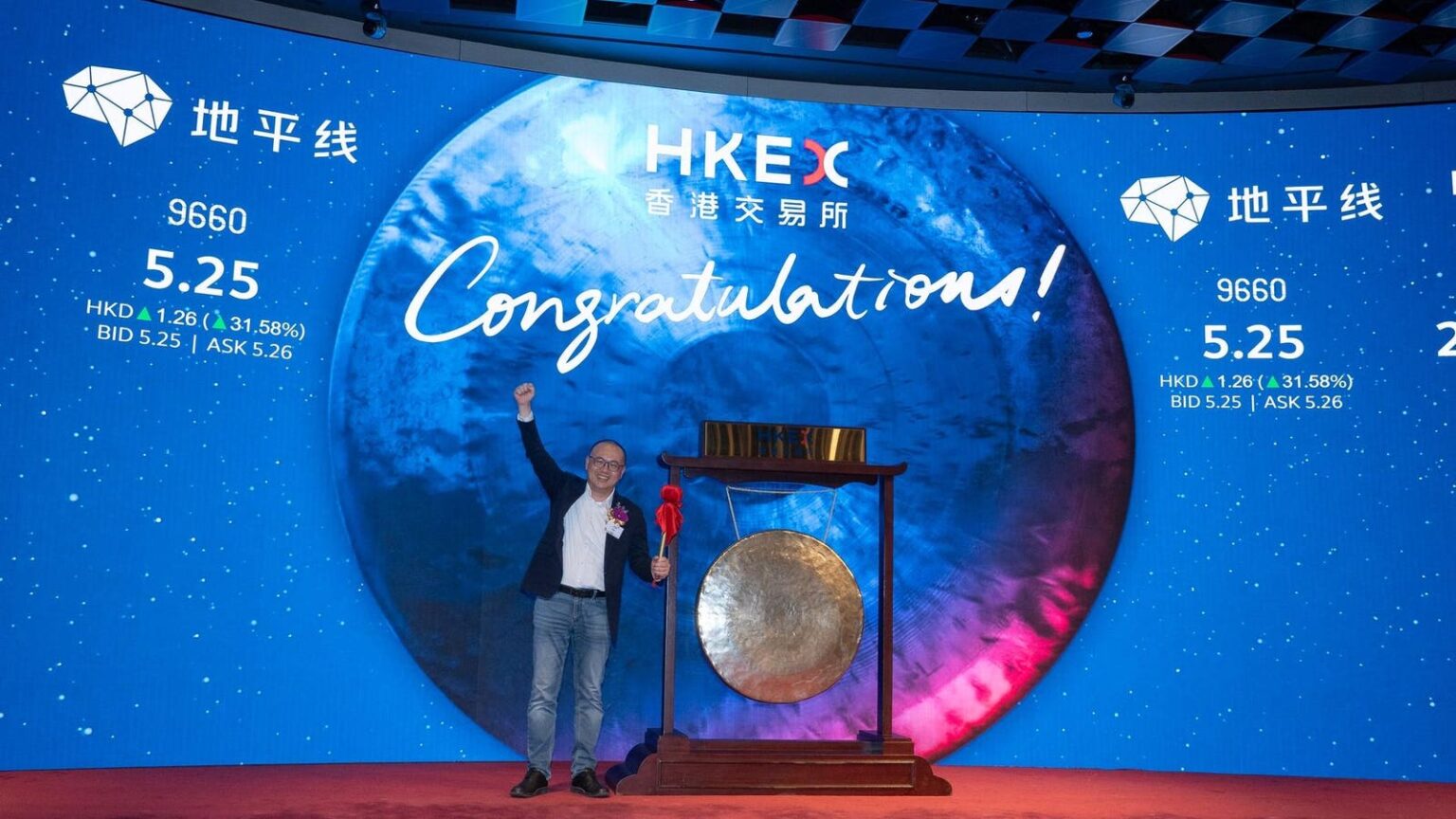Horizon Robotics, a Beijing-based company that develops both the software and hardware needed for self-driving cars, saw its shares rise in its highly anticipated Hong Kong stock market debut Thursday, boosting its market capitalization to $6.9 billion.
Horizon Robotics ended its first trading day at HK$4.1, up 2.8% from its HK$3.99-a-share IPO price. Its stock surged as much as 38% in intraday trading. The company raised HK$5.4 billion ($696 million) from the sale of 1.4 million shares at the top end of a marketed range of HK$3.73 to HK$3.99.
Its IPO, which is the largest in Hong Kong so far this year, attracted a slew of cornerstone investors, including Baidu, Alibaba, a government fund of the Chinese city of Ningbo and French shipping billionaire Rodolphe Saadé’s family office. Horizon Robotics said in its prospectus that it will use the proceeds to mainly fund its research and development efforts over the next five years.
“The completion of our Hong Kong listing marks a crucial step towards entering the international market,” Yu Kai, the company’s cofounder, chairman and CEO, said at the listing ceremony in Hong Kong on Thursday. “In the future, Horizon Robotics will remain committed to a people-centric approach, continue to increase investment in research and development, and continue to create value for users through technological innovation, making everyone’s travel safer and better.”
Before it went public, Horizon Robotics had no dearth of big-name investors. They include, among many others, Chinese state-backed automaker SAIC Motor; Baillie Gifford, a Scottish investment firm that’s backed by Amazon and Tesla; Intel Capital and three Forbes Midas Listers: Richard Liu’s 5Y Capital, Zhang Lei’s Hillhouse Investment Management and Neil Shen’s HongShan (formerly Sequoia China). German auto giant Volkswagen in 2023 spent more than $2 billion and took a 60% in a joint venture with Horizon Robotics, which focuses on developing self-driving technologies for Volkswagen’s vehicles sold in China.
The roster of billionaire investors goes on: Jean Salata’s EQT Private Capital Asia; Chey Tae-won’s Korean memory chip behemoth SK Hynix; YF Capital, a private equity firm cofounded by Jack Ma; Robin Zeng’s electric vehicle battery maker CATL; and Wang Chuanfu’s Chinese EV carmaker BYD.
Horizon Robotics was cofounded in 2015 by Yu, an artificial intelligence scientist who started an autonomous driving project at Baidu, as well as ex-Baidu chief R&D architect Huang Chang and associate director Tao Feiwen. Its most advanced system is called Horizon SuperDrive, which as per the company is designed to achieve human-like autonomous driving in urban, highway and parking scenarios. Launched in April, the system “theoretically supports” Level 4 automation, one level below full automation and is capable of making decisions in specific conditions without human input, according to its prospectus.
Horizon Robotics’ other systems offer features such as automatic emergency braking and parking assist. The company also licenses its proprietary algorithm and software to its clients so that they can develop their own customized products. The customer roster consists of 27 carmakers, including Volkswagen, South Korea’s Hyundai Motor, and China’s BYD, Geely, Li Auto and NIO.
Horizon Robotics claims in its prospectus to be the largest Chinese provider of assisted and autonomous driving systems by installation volume as of June, citing China Insights Industry Consultancy. The company said it has installed 900,000 systems in passenger cars in the first half of the year, earning it a 15.4% market share in China, after three other overseas providers.
That said, Horizon Robotics has yet to become profitable. In the first half of this year, the company’s net loss nearly doubled year-on-year to 5.4 billion yuan ($758 million), partly due to rising R&D costs. During the same period, it more than doubled its revenue to 934.6 million yuan, with 74% generated from licensing deals, followed by sales of self-driving systems and non-automotive systems such as those for home appliances. The company said it plans to break even “in the coming years” by growing sales, expanding to Japan, South Korea and Europe, and introducing more advanced autonomous driving systems.
The auto industry has long aspired to have self-driving cars as the new norm, but accidents and even fatal crashes have put the nascent technology under intensifying safety scrutiny. In October, Tesla unveiled the prototype of the driverless “Cybercab,” but disappointed investors with a lack of details on the technology behind the robotaxi. Meanwhile, Apple in February reportedly scrapped its self-driving electric car project after a decade-long effort.
Despite these setbacks, some companies are pushing ahead. Chinese autonomous driving startup Pony AI, founded by former Baidu employee James Peng, filed for an IPO in the U.S. last week. It is among a select group of companies to have received permits to test their driverless ride-hailing services on roads. Others include Baidu, whose robotaxis are available in several Chinese cities; China’s WeRide, which has obtained driverless permits in California, Singapore and the United Arab Emirates; and Alphabet’s Waymo, which is undergoing tests in a few U.S. cities.
Read the full article here

